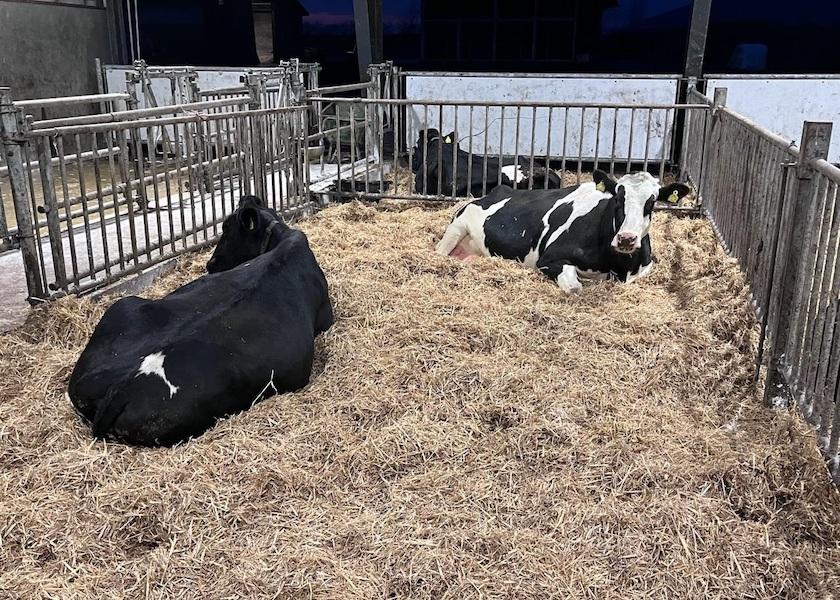In Search of the Maternal “Goldilocks” Diet

What’s the perfect close-up ration to optimize calf health -- something that’s not too much of this or too little of that, but “just right?”
It turns out researchers haven’t discovered it yet.
Irish dairy researcher John Mee at Teagasc, Ireland’s Agriculture and Food Development Authority, conducted an exhaustive review of published studies addressing the effects of gestational dairy cow nutrition on calf health. The studies evaluated colostrum production and quality, along with calf immunity, morbidity, and mortality.
The results, presented at the 2022 American Dairy Science Association Annual Meeting, showed a mixed bag of outcomes. Mee said the impacts of precalving nutrition on colostrum yield, quality, and calf health have proven to be highly variable. That’s partly because many of the evaluations were relatively small in size, and lacked consistency between studies.
He was, however, able to draw some general conclusions from the literature review, including:
- Once dietary energy, protein, and micronutrient requirements are met, prepartum body condition score and feeding of the dairy cow have limited impact on colostrum production or quality.
- Maternal nutrition that leads to oversized fetuses, prolonged labor, dystocia, micronutrient imbalance, or hypothermia, increases the risk of calf mortality from birth to 2 days post-calving.
- Inadequate maternal dietary energy, protein, and micronutrient status can negatively affect young calf immunity and health.
Some feeding practices that did show research-verified promise in improving maternal outcomes included:
- A recent study feeding ruminally protected amino acids during approximately the last 21 days of pregnancy showed that protected lysine and methionine diets increased colostrum total protein content (measured in Brix units); calf serum total protein and IgG in the first 7 days of life; and average daily gain (ADG) up to weaning at 60 days of life.
- Two studies showed promise in feeding mannan oligosaccharide (MOS) in the close-up ration. In one trial, feeding MOS for at least 4 weeks precalving improved colostrum yield (but not quality or subsequent calf performance). In another, feeding MOS for 3 weeks precalving tended to improve calf colostrum-derived immunity to rotavirus.
- Pregnant cows supplemented with organic (versus synthetic) trace minerals had significantly higher colostrum IgG levels in most, but not all, studies.
- Supplementation of pregnant dairy cows with additional fat in the diet has been shown to increase apparent efficiency of absorption of Ig, serum IgG concentrations, and ADG of their offspring.
Mee pointed out that the research data on the interactions of dam nutrition and calf immunity, health, and performance of dairy cows is relatively limited compared to the body of research on the subject in beef cattle.
Because dairy cow nutrition is comparably much more complicated, he said more specific research on the subject – with a goal of fine-tuning the best nutritional approaches -- is warranted for dairy dams and their calves.







